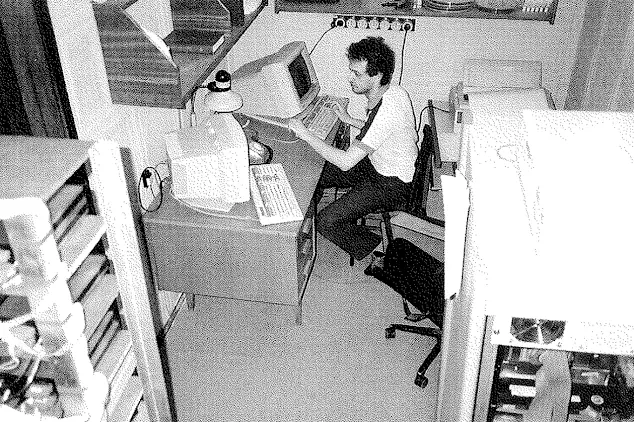


|
||
|
||

Last month, Russian Internet pioneer Alexey Soldatov was sentenced to two years in a labor colony on charges of “abuse of power.”
Soldatov, the co-founder of Russia’s first Internet service provider, Relcom, was convicted for his role as a co-founder and director of the Russian Institute for Development of Public Networks (RIPN). RIPN was founded in 1992 to support research and education networking. One of its functions was the “registration of IP numbers for the customers from the blocks delegated RIPN by the Europe coordination body RIPE”.
As Russia’s first local Internet registry (LIR), RIPN was allocated a block of IP addresses to distribute to customers for a fee. By early 2019, RIPN had assigned about 490,000 IPv4 addresses to more than 700 clients, mostly scientific and educational organizations.
In December 2018, the RIPN board decided to dissolve the organization since it was no longer commercially sustainable and its role as an operator of scientific and educational networks was no longer necessary. In April 2019, RIPN informed its clients that it was terminating its work as an LIR and re-registering their IP addresses in the RIPE database under a Czech company called Reliable Communications, which Alexey Soldatov and Alexey Shkittin owned. Shkittin was also a director of RIPN at the time. When the government learned of the dissolution plan, they stopped it, and RIPN reclaimed the IP addresses. (Today there are over 20,000 RIPE LIRs in 76 countries).
Defenders of the aborted transfer say the addresses had to go somewhere if RIPN was being dissolved, and they were neither property nor worth the 500 million rubles ($8.1 million) as charged. They also point out that the charges were initiated by Andrey Lipov, a prominent figure in the Russian Presidential Administration and the head of Roskomnadzor, the Federal Service for Supervision of Communications, Information Technology, and Mass Media.
Still, the transfer to a Czech company owned by Soldatov and Shkittin when they were RIPN directors looks fishy. Was this a case of embezzlement or political retribution by a government that wants to surveil and censor the Internet?
I don’t know the facts in this case, Russian law, or, with certainty, what motivated Soldatov to attempt to transfer those IP addresses, but I do know something about the character of the people involved.
I have first-hand knowledge of Alexey Soldatov. Relcom was launched on August 1, 1990, in the Kurchatov Institute of Atomic Research in collaboration with the DEMOS cooperative. (Soldatov is a physicist). DEMOS was a UNIX-like operating system derived from BSD Unix which Relcom developed and distributed to research and education organizations.
They used UUCP links to communicate with their Russian customers and soon connected to Europe (EUnet) through Tampere University of Technology in Finland. The ability to make regular, long international calls needed for data transfer was unheard of at that time in Russia—The Kurchatov Institute was an important research center.
My colleague Juri Gornostaev and I used that UUCP link to organize the First East-West International Conference on Human-Computer Interaction in Moscow. After the conference, I stayed in Moscow to meet and hang out with the Relcom staff. They were friendly, smart, idealistic, and anti-communist. They were members of the international Internet community as imagined by visionaries like Vannevar Bush and J. C. R. Licklider.

A few days after I returned home, a group of Russian officials attempted a coup against the relatively progressive Gorbachev government. Mass media were shut down or broadcast old movies and operas, but Relcom stayed online, relaying news within Russia and between Russia and the rest of the world. As Relcom staff member Polina Anatova said at the time, “Thank Heaven, these cretins don’t consider us mass media!”
I also know the character of Vladimir Putin and the Russian government. Russia commits daily war crimes in Ukraine, and political opponents who are not imprisoned tend to fall from the windows of tall buildings. Furthermore, Freedom House assessed Internet freedom in 70 nations last year, and the only nations judged to have less Internet freedom than Russia were China, Myanmar, Iran, and Cuba.
Given the uncertainties mentioned above, the government’s track record, Soldatov’s contributions to society and the fact that the IP address transfer never took place, he has been under house arrest awaiting trial and is in ill health, this prison sentence is politically motivated and morally unjustified.
For more on Relcom’s early days and the role it played at the time of the Soviet coup attempt, see:
Update Aug 29, 2024:
MK reported that Alexey Soldatov spent his first night in pretrial detention center No. 4 in terrible conditions—sleeping on the floor without a mattress in a cell for 40 people. The article also points out that he was sentenced to two years in prison even though the prosecutor’s office requested a more lenient sentence.
The Board of the Internet Society (ISOC) of Bulgaria has called upon Russia to release Soldatov. They cite his critical medical condition. In recent years he has had two cancer-related surgeries and has chronic cardiovascular and other health-related issues. A news article published on August 26 reported that he has a fever, problems breathing and his left lung is practically not working.
ISOC Bulgaria points out that suspended sentences are not unusual for people who have not committed crimes before and calls for Soldatov’s immediate release while his conviction is being appealed. Other organizations should do the same.
Sponsored byRadix

Sponsored byVerisign

Sponsored byDNIB.com

Sponsored byIPv4.Global

Sponsored byCSC

Sponsored byVerisign

Sponsored byWhoisXML API
